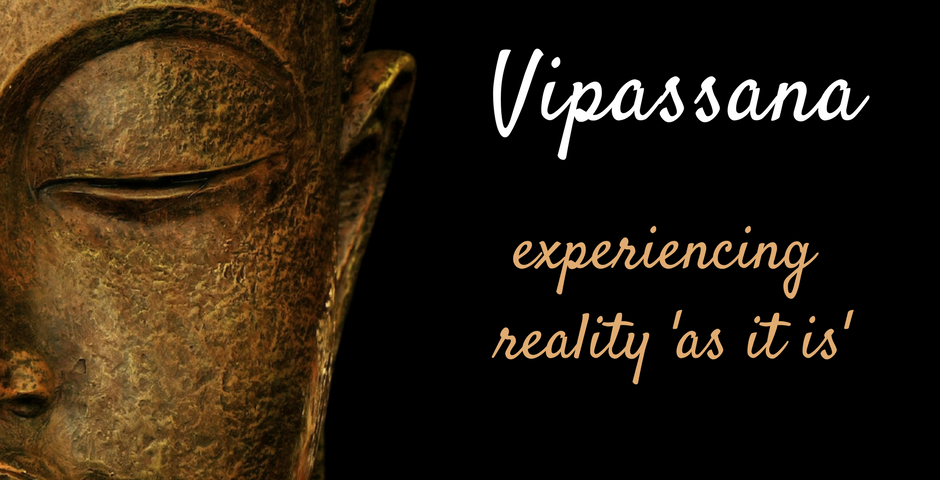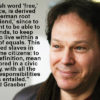【ハラリ氏講演派生記事】インド発ヴィパッサナー瞑想について
今日はいつもと趣きが違うが、悩みごとを抱えている人に少し役立つかもしれない情報をお届けしよう。
精神科や自己啓発セミナーや占いに通う、やけ食いする、飲む、打つ、哲学書を読む、宗教に入信する・・・世の中には腐るほど悩みごと解消ビジネスが存在する。しかし実はお金をかける必要はない。ただ「よくよく自分の内面と向き合う」だけで十分救われうるのである。
ここで紹介するのはヴィパッサナー瞑想は非常に歴史の深い瞑想法だ。前回紹介したインディア・コンクラーヴェでの講演後、歴史学者のハラリ氏はトークセッションで質疑応答に臨んだのだが、その中で彼が18年以上も続けている、このヴィパッサナー瞑想について語っていた。
ヴィパッサナー瞑想
ヴィパッサナー瞑想とは何なのか、公式サイトには次のように簡潔に説明されている。

ヴィパッサナー (Vipassana) は、物事をありのままに見る、という意味です。インドの最も古い瞑想法のひとつで、2500 年以上前にゴーダマ・ブッダによって再発見され、普遍的な問題を解決する普遍的な治療法、 生きる技として、多くの人に伝えられました。 宗教とはかかわりをもたないこの技は、あらゆる心の汚濁を取り除き、解脱という究極の幸福を目指しています。
重要なポイントは、この瞑想法はブッダがつくったのではなく「再発見」した「普遍的な」方法であること、したがって特定の「宗教とはかかわりをもたない」実践という点である。
別に坊さんにならなくても、誰でも瞑想を通じて「普遍的な問題を解決する」ことができるのである。朗報ではないか。
瞑想で何が得られるのか?
以下、ハラリ氏がヴィパッサナー瞑想について語っているインタビュー記事の一部を英日対照でお目にかける(質問者Ezra Klein氏の質問は適宜短縮する)。
出典:Yuval Harari, author of Sapiens, on how meditation made him a better historian
Ezra Klein
You told the Guardian that without meditation, you’d still be researching medieval military history — but not the
Neanderthals or cyborgs. What changes has meditation brought to your work as a historian?
瞑想によってもたらされた変化について教えてください。
集中:フォーカスする力
Yuval Harari
Two things, mainly. First of all, it’s the ability to focus. When you train the mind to focus on something like the breath, it also gives you the discipline to focus on much bigger things, and to really tell the difference between what’s important and everything else.This is a discipline that I have brought to my scientific career as well. It’s so difficult, especially when you deal with long-term history, to get bogged down in the small details or to be distracted by a million different tiny stories and concerns. It’s so difficult to keep reminding yourself what is really the most important thing that has happened in history, or what is the most important thing that is happening now in the world. The discipline to have this focus I really got from the meditation.
主に2つあります。まず第1に集中力です。心を何かに、例えば呼吸に集中するよう鍛えると、もっと大きなものに集中する術(規律)が身について、重要なことと、そうでないことの違いがはっきりわかるようになります。
この規律を研究にも適用しています。長期の歴史を扱っていると、細かいディテールに足を取られて身動きできなくなったり、ありとあらゆるストーリーや心配事に気が散って難儀します。過去の歴史で起きた最も重要な出来事は何か、いま世界で起こっている出来事で何が本当に重要か―、それを忘れずにいることはとても難しいですが、瞑想のお陰で、焦点を合わせる規律が身についたように思います。
「泥沼に落ち込む、身動きが取れなくなる、行き詰まる、完全に停止する」などを意味する便利なイディオム。
観照:現実と虚構を弁別する力
The other major contribution, I think, is that the entire exercise of Vipassana meditation is to learn the difference between fiction and reality, what is real and what is just stories that we invent and construct in our own minds. Almost 99 percent you realize is just stories in our minds. This is also true of history. Most people, they just get overwhelmed by the religious stories, by the nationalist stories, by the economic stories of the day, and they take these stories to be the reality.
もうひとつ役立っているのは、虚構と現実を区別する能力、現実と心の中で作り上げたお話を区別する能力です。ヴィパッサナー瞑想のすべての運動はこの弁別のために行うといっていいほどです。人間が認識しているストーリーのほぼ99%は心の中で作ったお話に過ぎません。これは歴史にも当てはまります。大方の人間は宗教家のストーリー、ナショナリストのストーリー、流行りの経済ストーリーなどに圧倒され、それらが本当だと思ってしまうんです。
My main ambition as a historian is to be able to tell the difference between what’s really happening in the world and what are the fictions that humans have been creating for thousands of years in order to explain or in order to control what’s happening in the world.
私の歴史家としての抱負は、数千年の文明世界で人間が現実に起きていることの説明もしくはコントロールのためにつくり出したフィクションと、本当に世界で起きていることの違いを語ることにあります。
文明史はフィクションとストーリーの歴史
Ezra Klein
One of the ideas that is central to your book Sapiens is that the central quality of Homo sapiens, what has allowed us to dominate the earth, is the ability to tell stories and create fictions that permit widespread cooperation in a way other species can’t. And what you count as fiction ranges all the way from early mythology to the Constitution of the United States of America.
ご著書の主眼は、ホモサピエンスが地球上で繁栄したのは、他の動物にはない人間の物語る力、他人の協力を募るためにフィクションを紡ぎだす能力だという点にあると思います。あなたがフィクションとおっしゃる中には、太古の神話から合衆国憲法まで含まれていて、とても幅広いですね。
I wouldn’t have connected that to the way meditation changes what you see as real, but it makes sense that if you’re observing the way your mind creates imaginary stories, maybe much more ends up falling into that category than you originally thought.
あなたが瞑想から得たものの見方の変化にすべてを結びつけようとは思いませんが、でも、こころがどうやって想像上のストーリーを作り出すかを観察していると、当初の想定以上に多くの事柄がフィクションの分類に当てはまっていくのではありませんか?
Yuval Harari
Yes, exactly. We seldom realize it, but all large-scale human cooperation is based on fiction. This is most clear in the case of religion, especially other people’s religion.You can easily understand that, yes, millions of people come together to cooperate in a crusade or a jihad or to build the cathedral or a synagogue because all of them believe some fictional story about God and heaven and hell.
おっしゃる通りです。私たちはほとんど意識していませんが、人間の大規模な協力はすべてフィクションに基づくものだと思います。とくに宗教。それも他者が信じている宗教について、そうなります。
ご承知のように十字軍やジハードには何百万もの人が協力して、聖堂を建てシナゴーグを建てました。それというのも、彼らはみな神に関するフィクション、天国と地獄に関するフィクションを信じていたからです。
宗教というフィクション、人権というフィクション
What is much more difficult to realize is that exactly the same dynamic operates in all other kinds of human cooperation. If you think about human rights, human rights are a fictional story just like God and heaven. They are not a biological reality. Biologically speaking, humans don’t have rights. If you take homo sapiens and look inside, you find the heart and the kidneys and the DNA. You don’t find any rights. The only place rights exist is in the stories that people have been inventing.
もう少し認識しにくいレベルでいえば、宗教以外の協力行動にも、まったく同じ力学が働いています。例えば、人権。人権というのは神や天国と同じように虚構です。人権などという生物学的現実は存在しません。生物学的にいえば、人間は権利など持っていません。ホモサピエンスの中を覗けば、そこにあるのは心臓と腎臓とDNAであって、権利などという組織はありません。権利は人間が発明したストーリーの中に存在するだけです。
貨幣という最も成功したフィクション
Another very good example is money. Money is probably the most successful story ever told. It has no objective value. It’s not like a banana or a coconut. If you take a dollar bill and look at it, you can’t eat it. You can’t drink it. You can’t wear it. It’s absolutely worthless. We think it’s worth something because we believe a story.
We have these master storytellers of our society, our shamans — they are the bankers and the financiers and the chairperson of the Federal Reserve, and they come to us with this amazing story that, “You see this green piece of paper? We tell you that it is worth one banana.”
もうひとつ、お金という模範例があります。おそらく、お金ほど成功したストーリーは他にないでしょう。お金は客観的な価値を持っていません。バナナやココナッツのように食べれません。ドル札を改めてしげしげ観察しても、食べることも飲むこともできません。着ることもできない。お札自体は悲しいくらい無価値です。でも人間はお金の物語を信じているので、ドルには価値があると思っているのです。
現代社会は、銀行家、金融家、FRB議長等々、偉大な語り部、経済シャーマンに事欠きません。彼らは「この緑色の紙が見えますか?これはバナナ1本と同じ値打ちがあるんです」と語ります。
If I believe it and you believe it and everybody believes it, it works. It actually works. I can take this worthless piece of paper, go to a complete stranger who I never met before, give him this piece of paper, and he in exchange will give me a real banana that I can eat.
私やあなたがこの語り部の言うことを信じれば、他のみんなも信じるようになります。その時点で物語は現実に働き始めるのです。実際、いまもうまく働いています。この何の値打ちもない紙きれを、これまで一度も会ったことのない赤の他人に渡せば、本物の食べれるバナナが手に入るんですから。
This is really amazing, and no other animal can do it. Other animals sometimes trade. Chimpanzees, for example, they trade. You give me a coconut. I’ll give you a banana. That can work with a chimpanzee, but you give me a worthless piece of paper and you expect me to give you a banana? That will never work with a chimpanzee. This is why we control the world, and not the chimpanzees.
これは本当に驚くべきことです。他にこんな芸当のできる動物はいません。他の動物もたまに物々交換くらいならします。例えば、チンパンジーはココナッツとバナナを交換するくらいのことはします。でもチンパンジーはここが限界です。無価値の紙きれと交換にバナナを手に入れるなんて、絶対チンパンジーは受け入れてくれません。以上がチンパンジーではなく人間がこの世界を支配している理由なんです。
フィクションのあやうさ
Ezra Klein
But there are ways in which those stories create fragility, too. You take something like the 2008-’09 financial crisis. What happened there was the global financial markets had told themselves a story. They had told themselves a story about how much risk there was, in particular subprime mortgage debt, and that story turned out to be wrong. All of a sudden, they had to tell themselves a different story, and then all the stories built on that story collapsed — stories about how stocks in the lumber industry would do, and how many people would have jobs in a year. And eventually that changed reality.
でも物語がもろくも崩れ去る瞬間もありますね。例えば、2008年から9年にかけての金融危機がそうです。あの場合、世界の金融市場が自分自身に作り話をしていわけです。彼らはリスクというお話をつくった。とくにサブプライムと呼ばれる住宅ローン債務ですね。で、実際に、お話のなかのリスクが現実化すると、彼らは突然、違う話をつくる羽目に陥りました。そして最初のお話に基づいて築かれたあらゆるお話が崩れ去りました。材木市場の在庫がどうなるとか、年間何人の雇用が生まれるかとか、そういう話がぜんぶ崩れた。結局、虚構の崩壊が現実を変えることになりました。
A fragility here is when you begin to mistake your stories for reality, and you overestimate both their permanence and how difficult it would be for them to be changed or moved.
この虚構の脆さは、虚構を現実と取り違えたとき、人間は虚構の永続性を買い被るところから来ます。一度取り違えられた虚構を、後から訂正もしくは移動するのは大変困難です。
Yuval Harari
Yes, it goes both ways. Because it is based on stories, human society is far more flexible and dynamic than any other society on earth, and at the same time, it’s also far more fragile.
はい、ストーリーはどちらの方向にも展開します。人間社会は虚構に基づいているので、地球上の他にあるどの社会より柔軟でダイナミックですが、同時に他の社会よりはるかに脆弱でもあります。
Think, for example, about revolutions. Among other animals, it’s very difficult to change the social system overnight. It’s almost impossible. If you think about, for example, a beehive, the bees have had their social system for millions and millions of years, and they cannot change it unless through a very slow and very complicated process of natural selection and evolution. The bees cannot just wake up one morning, execute the queen bee, and establish a communist dictatorship of worker bees.
例えば、革命について考えてみましょう。他の動物の場合、一夜で社会システムをひっくり返すなんてありえません。ほとんど不可能だと思います。蜂の巣を例にとれば、ミツバチは何百万年もの間、独自の社会システムを持っていますが、それを変えようにも、非常に遅々とした、込み入った自然淘汰と進化の過程を経る以外、方法がありません。ミツバチがある朝起きて女王蜂を処刑し、労働者ミツバチの共産独裁政府をつくるなんてありえないのです。
But among humans, we do have such social revolutions. Exactly a century ago, 1917, you had the communist revolution in Russia, where the revolutionaries executed the czar and established a completely different social system in Russia within a few years just by changing the story Russians believed. They no longer believed in the divine right of the czar. Instead, they now believed that authority comes from the workers, from the people.
ところが人間の場合、社会革命は現実になりました。ちょうど1世紀前の1917年、ロシアで共産主義革命が起きたのです。革命軍は皇帝を処刑し、それまでとまったく違う社会システムへ移行しました。ロシア人の信じるストーリーを変えただけです。それもたった数年間の間にです。ロシア人は皇帝に付与されたはずの神聖な権力を信じず、力は労働者に、民に由来するというストーリーを信じることにしたのです。
政治はプロパガンダを通じて物語を吹き込む
This is why every society invests so much effort in propaganda and brainwashing people from a very early age to believe in the dominant story of the society, because if they don’t believe, everything collapses.
これが、あらゆる社会がプロパガンダに手間暇とお金を惜しまず、非常に早い時期から人々を洗脳し、社会に通用している物語を信じさせようとする理由です。国民に信じてもらわなければ、すべてが成り立ちませんから。
60日間の引きこもり(静修)とは?
Ezra Klein
Before we leave the topic of meditation, I read that you do routinely 60-day retreats. That is an experience that I cannot imagine, so I would love to hear what those are like for you and what role they serve in your life.
瞑想から別のテーマに移る前にひとつお聞きします。年に60日間の静修をされると読みました。私にはどんなものか想像がつかないので、静修がどんなものか、あなたの生活の中での役割などについてうかがえますか?
Yuval Harari
First of all, it’s very difficult. You don’t have any distractions, you don’t have television, you don’t have emails, no phones, no books. You don’t write. You just have every moment to focus on what is really happening right now, on what is reality. You come across the things you don’t like about yourself, things that you don’t like about the world, that you spend so much time ignoring or suppressing.
まず第1に、静修はとても難しいものです。気晴らしの手段は一切ありません。テレビもeメールも。電話も本もありません。書くのもダメです。瞬間瞬間、いま現在起きていることに集中し、何が現実に焦点を絞ります。そして自分の好きでない部分、世界の好きでない部分、日頃無視したり抑制したりしていることに向き合うのです。
You start with the most basic bodily sensations of the breath coming in and out, of sensations in your stomach, in your legs, and as you connect to that, you gain the ability to really observe what’s happening. You get clarity with regard to what’s happening in your mind. You cannot really observe anger or fear or boredom if you cannot observe your breath. Your breath is so much easier than observing your anger or your fear.
始めに呼気と吸気の出入りを通じて基本的な体感を得ます。次に胃の体感、足の体感を得ます。その体感に接続できるようになると、いま起きていることを観察する能力が得られます。心の中で起きていることも明瞭にわかるようになります。呼吸を観照できなければ、怒り、恐怖、退屈も本当には観照できません。呼吸を感じるのは怒りや恐怖を観照するよりはるかに簡単なのです。
People want to understand their anger, to understand their fear. But they think that observing the breath, oh, this is not important at all. But if you can’t observe something as obvious and as simple as the breath coming in and out, you have absolutely no chance of really observing your anger, which is far more stormy and far more difficult.
人々は恐怖や怒りを理解したがりますが、呼吸の観照と聞けば、取るに足らないと考えてバカにするでしょう。しかし、呼吸のように自明で単純なことを観照できない人間が、はるかに激しく難しい怒りなど観照できるはずがありません。
What happens along the 60 days is that as your mind becomes more focused and more clear, you go deeper and deeper, and you start seeing the sources of where all this anger is coming from, where all this fear is coming from, and you just observe. You don’t try to do anything. You don’t tell any stories about your anger. You don’t try to fight it. Just observe. What is anger? What is boredom? You live sometimes for years and years and years experiencing anger and fear and boredom every day, and you never really observe, how does it actually feel to be angry? Because you’re too caught up in the angry.
60日の間、心の焦点が定まり、クリアになっていきます。集中を深めれば深めるほど、怒りや恐怖がどこから来ているかがわかり、それらをただ眺めるようになります。何かしようという気は起こりません。怒りについての話もつくりません。怒りと戦おうともしません。ただ眺める。怒りとは何か?退屈とは何か?人は何年も何年も怒りや恐怖とともに生き、来る日も来る日も退屈を感じているかもしれませんが、それらを眺めることはまずありません。どうして怒りが湧くのか?怒りに囚われているからに過ぎません。
The 60 days of meditation, they give you the opportunity. You can have a wave of anger, and sometimes it can last for days and you just, for days, you do nothing. You just observe. What is anger? How does it actually feel in the body? What is actually happening in my mind when I am angry? This is the most amazing thing that I’ve ever observed, is really to observe these internal phenomena.
瞑想の60日間によって、あなたは眺める機会を与えられるのです。怒りの波に襲われることがあります。ときに数日間続くこともありますが、その間、何もしてはいけません。ただ観察するのです。怒りとは何か?からだではどのように感じるか?怒っているとき実際には何が起きているのか?それが、私がこれまでに眺めた最も驚くべき現実です。自分の内部に生じている現象を眺めることは驚異以外の何物でもありません。
(後略)
<記事引用終わり>
瞑想は “非宗教” 的なメンタルトレーニング
以上でおわかりのように瞑想には何の神秘もない。何となくみんながイメージするミステリアスさやドラマティック成分は限りなく希薄だ。宗教者は口が裂けてもいわないだろうが、人間は別に絶対者などにすがらなくても大丈夫だし、十分救われるのである。
トコシエも偉そうにいえた義理ではないが、それでも年の功なのだろう、最近は怒りに囚われることがない。瞬間的に怒りが湧き上がっても、簡単に鎮めることができるようになった。
ぶっちゃけた話、人間の悩みごと、トラブル、犯罪の大半は「本当の現実」「本物の自分」に向き合わないことから起きている。ハラリ氏が例に挙げている人権思想、共産主義、ナショナリズム、貨幣崇拝・・・などの “疑似宗教” も「本当の現実」「本物の自分」に向き合わず、ただ救いを求める人類がつくりあげた幻想世界である。
ただハラリ氏も一貫して主張しているように、人間はこのようなフィクションによって大きな問題を解決し、万物の霊長として地上に君臨し、文明を築きあげてきた実績をもつ。だからフィクションやストーリーを信じるこころは人間性の抜き差しならない一部になっている。
それは今後も変わらないだろうから、瞑想で囚われから解放されることの効用は増すことはあっても減ることはないだろう。








ディスカッション
コメント一覧
まだ、コメントがありません